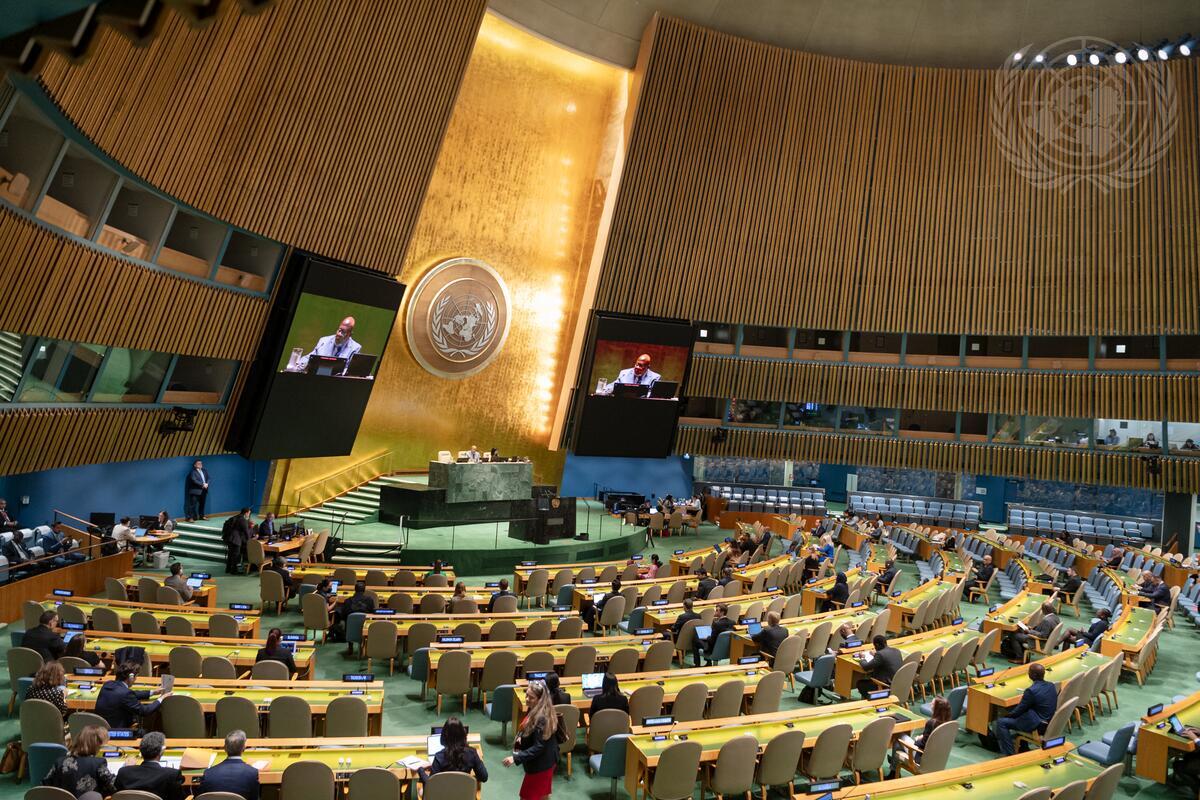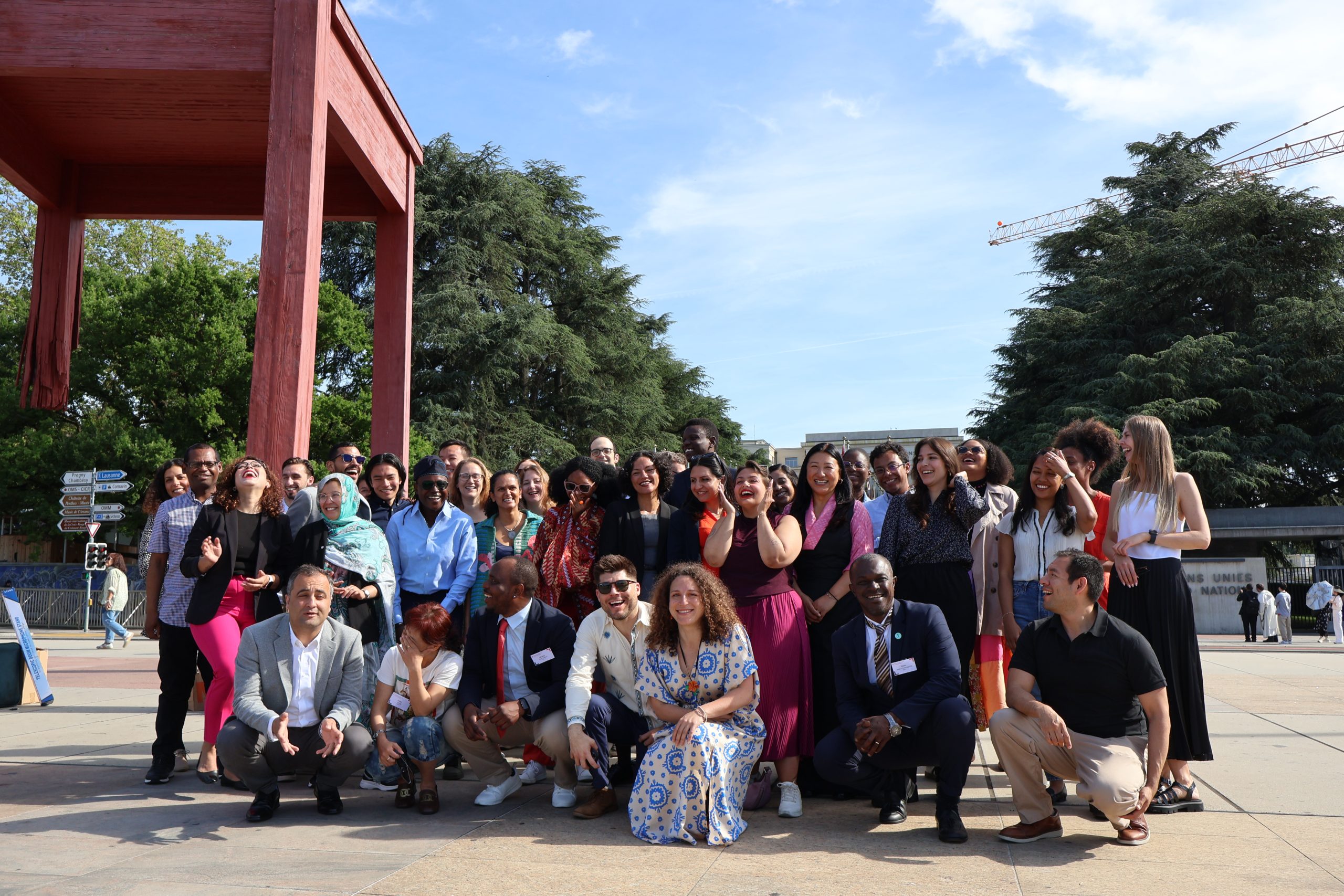A year after being suspended from the body, Russia will not be returning to the UN Human Rights Council in January, despite its best efforts. We are pleased to see that States at the UN General Assembly did not support Moscow’s candidacy for one of the available 15 seats for the period between 2024 and 2026.
Running for one of two seats allocated to countries from Central and Eastern Europe, Russia received only 83 votes, significantly less than competitors Albania (123) and Bulgaria (163).
‘With this vote, States have acted in line with General Assembly resolution 60/251 and stopped Russia’s brazen attempt to undermine the international human rights system,’ said Madeleine Sinclair, co-director of ISHR’s New York office. ‘Russia must answer for a long list of crimes in Ukraine and for its ruthless and longstanding crackdown on civil society and individual liberties at home. We’re relieved voting States agreed that it could not have legitimately held a seat at the UN’s top human rights body,’ Sinclair emphasised.
The vote follows several high-profile discussions of Russia’s human rights record. On September 18, the UN Special Rapporteur on Russia informed the Council of a ‘rapid deterioration of the human rights situation’ since the full-scale invasion of Ukraine. And a week later, the Council-mandated Commission of Inquiry on Ukraine said it had collected further evidence indicating widespread and systematic use of torture by Russian armed forces in areas under their control.
In the only other competitive race, between States from Latin American and the Caribbean, the General Assembly re-elected Cuba, one of Russia’s most consistent allies. Cuba ran for one of three seats for Latin America and the Caribbean, facing three competitors and coming in first, with 146 votes, ahead of Brazil (144), the Dominican Republic (137) and Peru (108).
‘Cuba’s domestic rights record, which includes the documented suppression of dissent and over 1000 political prisoners behind bars, makes it manifestly unfit for this assembly,’ said Madeleine Sinclair. ‘Cuba and Russia typically echo each other’s positions at the Council, and will likely continue to work together to block attempts to address crises involving them or their allies,’ Sinclair added.
Results for Asia and Africa were as disappointing as they were predictable, with the election of China and Burundi. Both States ran in uncompetitive races, with only as many candidates as seats available, thus all but assured to win. They were elected with 154 (China) and 168 (Burundi), finishing bottom of each of their respective regional slates with noticeably fewer votes than their direct competitors.
Both countries are objectively and manifestly unsuitable for the Human Rights Council in view of their domestic records, their past actions as Council members, and the very criteria that nominally governs membership of the Council.
‘China and Burundi’s elections are unfortunately not surprising and their memberships will be consequential,’ said Tess McEvoy, co-director of ISHR’s New York office. ‘China and Burundi won their seats because they faced no opposition in their regional slates. The only way to create even a chance for positive outcomes during Council elections is for States that comply with resolution 60/251 to run, and for all regions to put an end to close-slate elections,’ McEvoy stressed.
ISHR has been campaigning to call on States at the General assembly to vote in accordance with resolution 60/251 and to use their votes to ensure a strong and principled Human Rights Council. ISHR produced a series of individual and regional scorecards examining the records of all 17 candidates running this year.
ISHR continues to urge all States with constructive agendas and a genuine commitment to the protection of human rights to run in future elections, to make all regional slates competitive and ensure only the most qualified candidates are elected to the Council.
Additional information:
Below is the full list of candidates who sought election, with elected States in bold and results for each of them in brackets:
- African States (4 candidates, 4 seats):
- Côte d’Ivoire (181 votes), Burundi (168), Malawi (182), Ghana (179)
- Asia and the Pacific States (4 candidates for 4 seats):
- Kuwait (183), China (154), Indonesia (186), Japan (175)
- Latin America and Caribbean States (4 candidates, 3 seats)
- Brazil (144), Peru (108), Dominican Republic (137), Cuba (146)
- Western Europe and other States (2 candidates, 2 seats):
- The Netherlands (169) and France (153)
- Central and Eastern Europe States(3 candidates, 2 seats):
- Albania (123), Bulgaria (160) and Russia (83)




